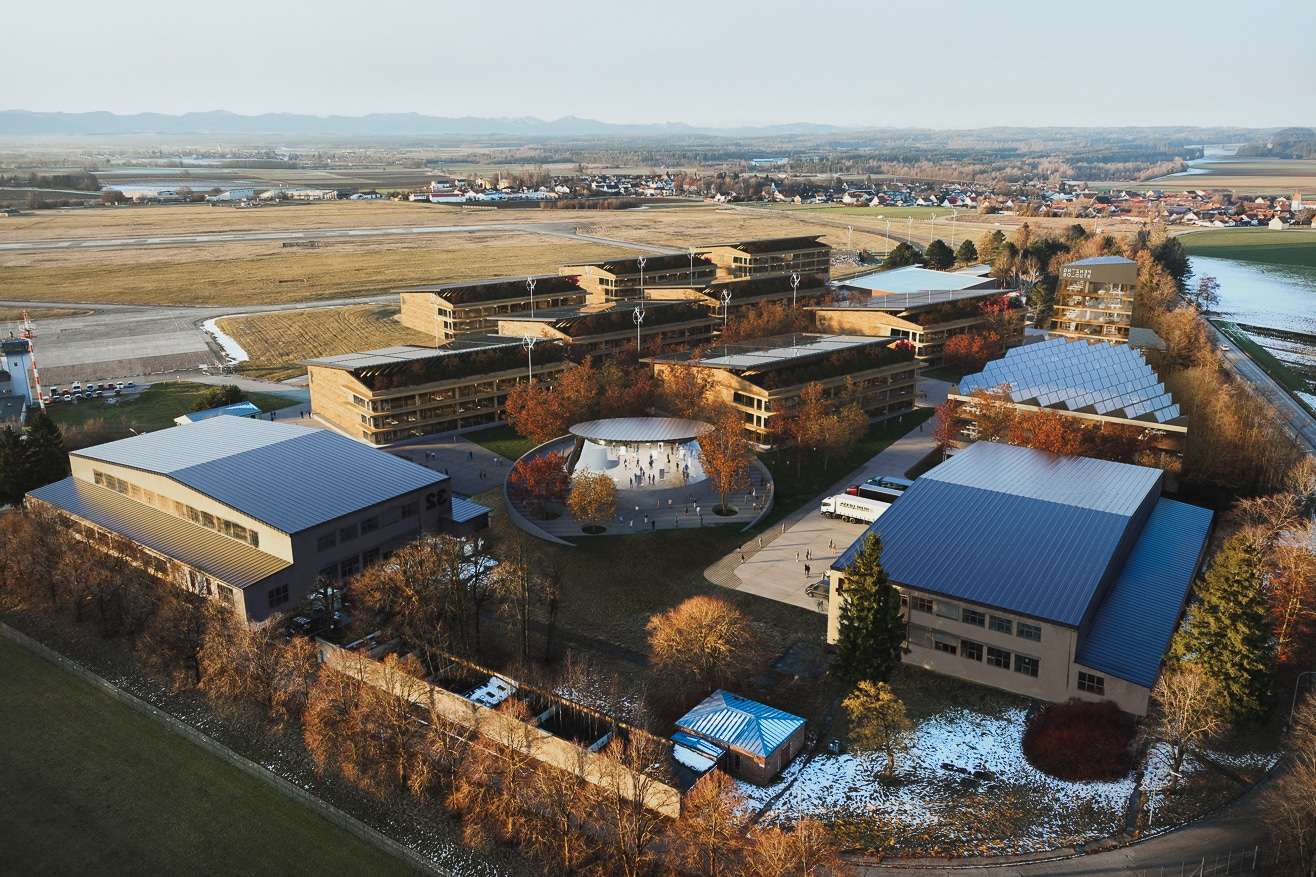Penzing Studios, which recently opened its zero-emissions film and television studio outside Munich, is working with a world-renowned architect firm to ‘create an attractive and sustainable working environment’.
A major film and TV facility is working with an international architect firm to become the world’s first zero-emission studio.
Penzing Studios, based 30 miles west of Munich, Germany, recently started a phased opening, with initial productions now being shot on site.
It is set to open further sound stages this Summer, with a full-scale virtual production stage also on the cards. Developers are planning to invest €100 million creating 12 stages, 25,000 meters of production space, and 15,000 square meters of workshop and office spaces.
By hosting post-production, visual effects, gaming, digital media, technology companies, educational opportunities, an event center and auditorium, Penzing Studios will become one of the country’s biggest production hubs.
And it is likely to be its most eco-friendly.
In a bid to reach zero emissions status, developers are working with architecture and design firm Snøhetta, which is based in Oslo, Norway and New York City and has studios throughout the US and Europe.
Zero emissions masterplan vision
In a recent post on Instagram, Snøhetta wrote: “[We have] developed a masterplan vision for a new film studio facility called Penzing Studios at a former airbase 30 miles west of Munich.
“The aim is to develop the world’s first zero-emission film studio. Based on the Powerhouse concept and sustainable construction principles, all structures added to the existing facilities will use rammed earth and wood to create an attractive and sustainable working environment.”
Speaking about the facility to Celluloid Junkie, Penzing Studios Managing Partner Jörn Siegele and producer and partner Joe Neurauter said: “Supply continues to outstrip demand for studio facilities and there are transformative shifts underway in the way in which film and television is created.
“We are at the forefront of these changes and aim to create a sustainable hub in which creative people can thrive and do their best work.”
Hollywood goes eco
The new studio does not mark the movie industry’s first foray into eco-consciousness. Last month it was revealed that Jennifer Lopez’s new picture Marry Me does not feature any single-use plastic onscreen.
Director Kat Coiro partnered nonprofit Habits of Waste. The environmental organization launched its ‘Lights, Camera, Plastic‘ campaign, saying that films ‘normalize the throw-away society that we find ourselves in today’.
Its aim is for Hollywood to significantly reduce the amount of single-use plastic shown on screen, which will help ‘end the normalization of trillions of single-use plastics discarded per year’.
In the movie, characters are seen using eco-friendly items, including reusable water bottles and stainless steel lunchboxes instead of plastic bottles and takeaway containers.
An end to single-use plastic onscreen?
Speaking about the decision to remove single-use plastic from the screen, Coiro told The Hollywood Reporter: “My first approach was, ‘Let’s have green sets,’ but the truth is the cost of that can be prohibitive.
“One thing I do have control of is what goes on the screen. If plastic is not a story point, which it really never is, why do we need to put it on the screen?”

She also likened single-use plastic in films to smoking onscreen – noting that as the negative health implications of smoking became better known, the activity was less normalized in films and TV shows, and said she hopes the same thing happens with plastic.
Other steps the industry has taken towards being more sustainable in recent years include serving plant-based meals at awards ceremonies including the BAFTA Golden Globes, in 2020, in a bid to reduce food-related emissions.


